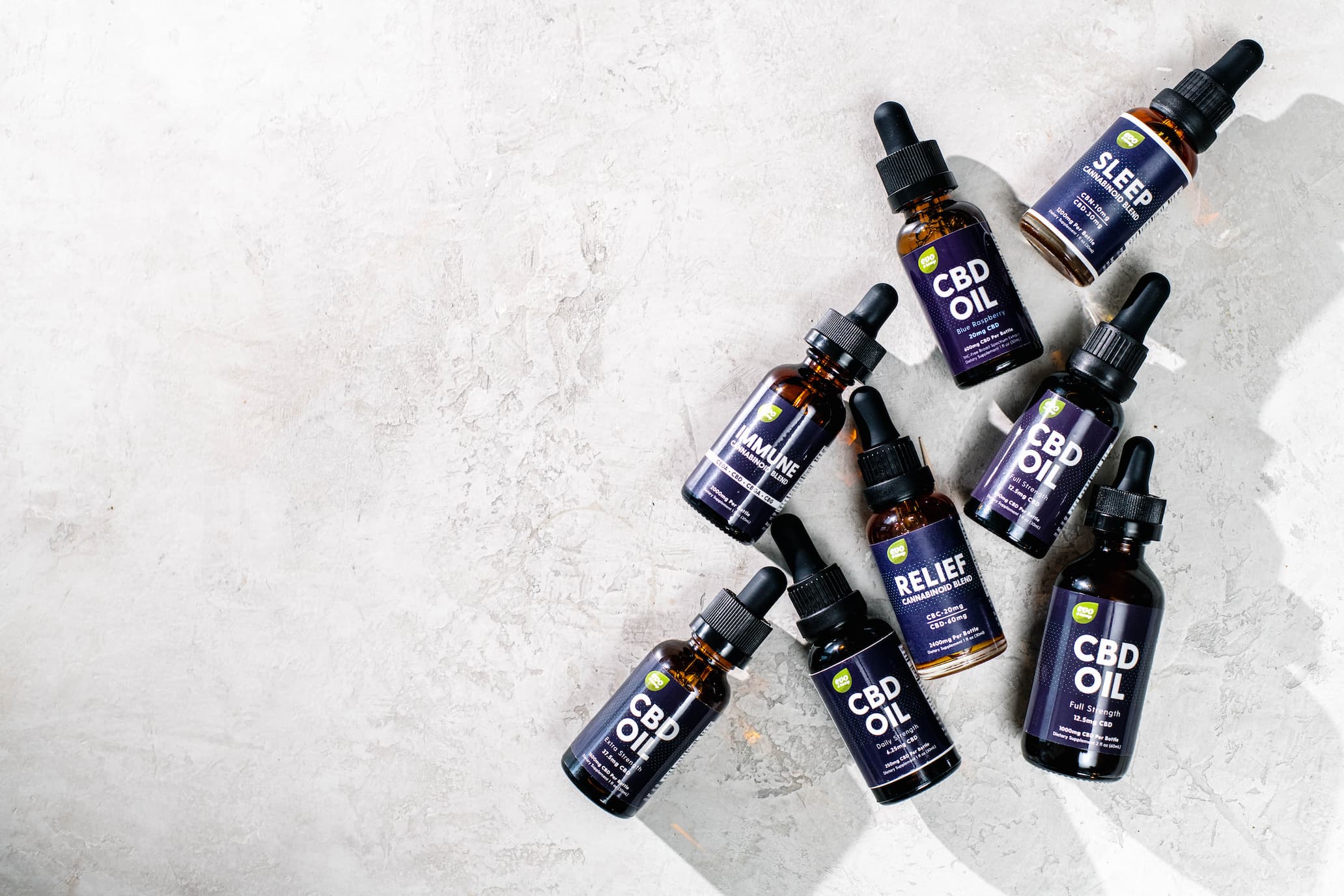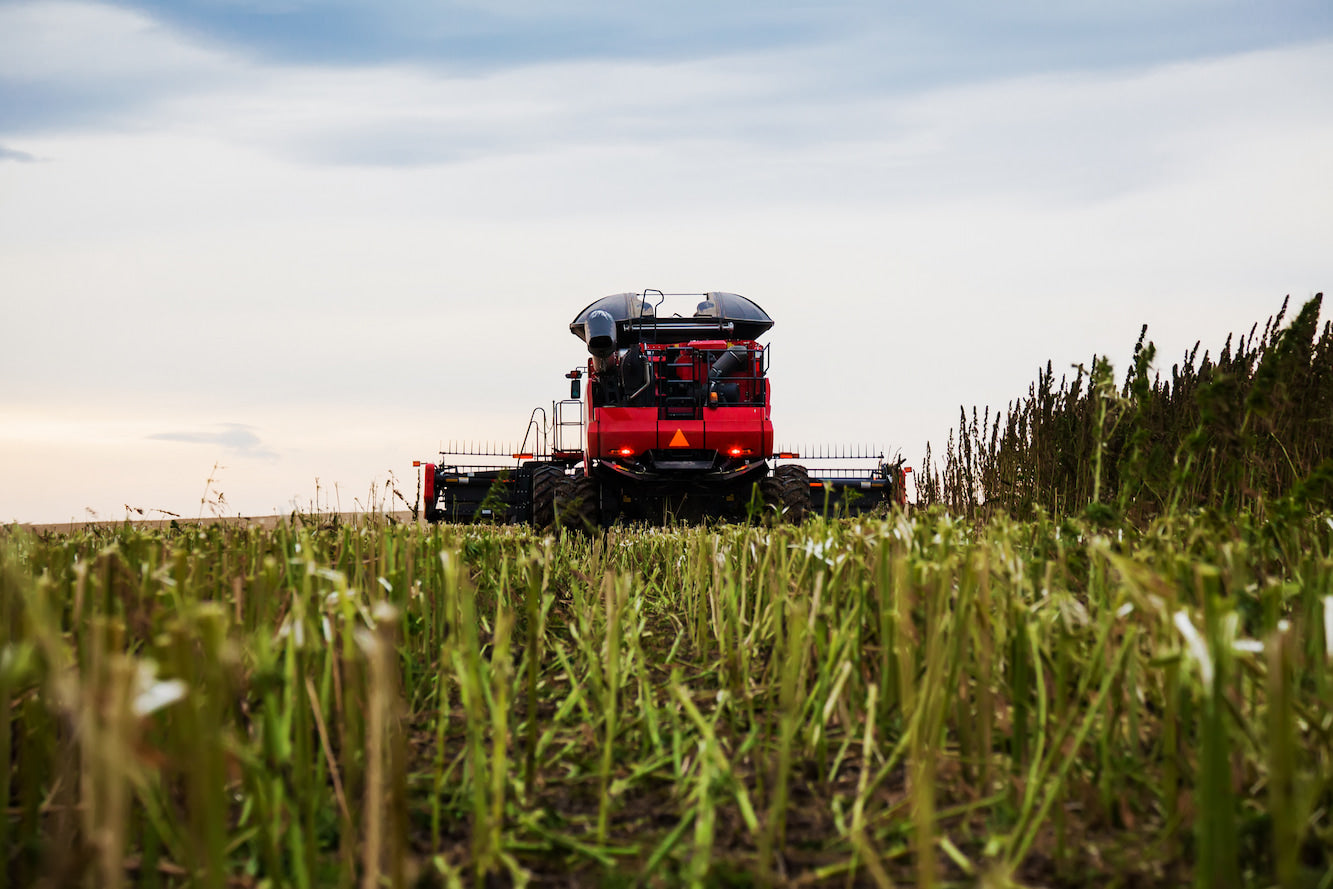CBD Oil Strengths: A Complete Guide

High-quality CBD products can be pricey, and if you’re going to invest in your wellness, you want to be sure that your money is well spent. The price of CBD can vary significantly depending on the strength, ingredients, extraction process, and flavors of the product. Choosing the right strength is important, and may even help save you money in the long run.
CBD comes in a wide variety of strengths. CBD manufacturers typically decide their own strengths for their products since there is no official uniform standard for what a serving size of CBD should be.
So which strength do you need? Is there such a thing as too much CBD?
Understanding CBD Strengths
The first part of buying CBD is understanding what you’re looking at. If you’re new to CBD and hemp oil, what you see on the label may be confusing.
The strength on the label of your CBD oil tinctures refers to the amount of CBD in the entire bottle. A 2,500-milligram tincture doesn’t mean you get 30 servings of 2,500 milligrams each — it’s 30 servings at 83 milligrams each.
Many manufacturers will list the amount of CBD per serving on the back of the bottle, and one dropper full is typically a serving.
You don’t necessarily need to use the entire dropper either if the CBD you’re using is high strength. If the CBD you currently have is much stronger than what you need, use half the dropper. The bottle will last longer and you’ll save a substantial amount of money by avoiding waste.
So, is stronger always better? Maybe, but maybe not.
It can be difficult to know what the appropriate strength of CBD for you will be until you’ve had real experience using CBD.
Generally, new CBD users will only need a minimal amount to experience the benefits, and as they get comfortable, they can increase their dose until they find that their wellness goals are being met.
Can You Take Too Much CBD?
A maximum dose of broad spectrum CBD oil is generally regarded as 1,500 mg of CBD a day. This concentration of CBD doesn’t even exist as a single dose.
The only people who would need to take such a substantial amount of CBD are patients taking Epidiolex, an FDA-approved form of CBD used for the treatment of seizure disorders.
Wellness-focused CBD users will only use a fraction of that amount.
A toxic dose of CBD is estimated to be 20,000 mg of CBD. It’s nearly impossible to achieve this dose, and even if you were to somehow ingest that much CBD, it likely would not have lethal consequences after reaching your bloodstream.
Although an overdose of CBD is extremely unlikely, you should still take note of how much CBD you’re using and be modest with your dosage. It doesn’t take a lot of CBD to get wellness support.
What Strength of CBD Do I Need?
Choose a CBD strength based on your daily needs. If you know how you intend to use your CBD and what your standard dose will be, all you need to do is select a CBD strength that closely matches your dosage needs per serving.
There is no standard dosage or daily recommended mg CBD oil since it’s not a vital vitamin or mineral.
You’ll see a wide variety of recommendations. Some wellness experts say to take between 10 mg and 20 mg a day, regardless of any other factors. (This is good advice for first-time CBD users who don’t have firsthand experience with the effects of CBD). Other experts say to use 0.25 mg of CBD per pound of body weight.
If you’re following the 0.25 mg of CBD per pound of body weight rule, let that guide you when selecting CBD strength. If you weigh 130 pounds, your recommended dose would be about 33 mg of CBD per day. If you weigh 180 pounds, your recommended dose would be 45 mg of CBD per day.
If your standard dose is going to be higher, it makes more sense to get high-potency CBD oil. Doubling up on lower strength CBD isn’t efficient. You’ll ultimately be spending far more by burning through your CBD oil twice as fast, and all that oil can just cause GI discomfort.
What Strength of CBD Oil Should I Take for Wellness Support?
If you’re using high-quality CBD oil as a general wellness tool, just like you’d use a multivitamin or a green smoothie, you only need a minimal amount. Your weight-appropriate dose should be enough to stimulate your endocannabinoid system. Consult your product’s packaging for exact numbers.
What Strength of CBD Oil Should I Take for Workout Recovery?
Many people find that their standard wellness support dose is efficient enough to support workout recovery. Other people prefer to maximize the benefits of their CBD by using double the standard dose, or 0.50 mg of CBD per pound of body weight. If you work out frequently, you might want to consider opting for a higher-strength CBD oil.
What Strength of CBD Oil Should I Take to Calm Down?
People who use CBD to ease emotional tension are seeking the maximum calming and soothing benefits and compounds from CBD. These same benefits help to support better sleep by promoting relaxation.
These benefits become more pronounced with greater amounts of CBD. CBD has been studied for its positive effects on mood and sleep, and results were successful at doses between 300mg and 600mg, which is substantially more than what people would take for wellness.
If you’re using CBD to help balance your mood, it may be worth investing in extra strength CBD. Begin with 300 milligrams of CBD per day and try that for a few weeks. You can slowly increase your dose every few weeks.
What If I Don’t Feel the Effects of CBD?
If your CBD isn’t producing the benefits you’re expecting, changing strengths or upping your dosage may be one solution. Just make sure you understand what to expect, and you know how to actually use your CBD before you assume the strength is the problem.
Here are a few possible things that may affect whether or not you experience benefits from your CBD.
1. You’re Not Sure What You’re Looking For
Although broad-spectrum CBD technically comes from a cannabis plant, it doesn’t produce the same kind of profound and noticeable effects that people feel when they use cannabis-derived products because it is THC-free.
CBD will affect you the same way that committing to a healthy eating plan or incorporating daily exercise will affect you. You’ll get a gradual overall sense of increased wellbeing with regular use.
CBD may make you feel a little less tense once the minor cannabinoids kick in, but the effect won’t be profound in the way a sedative or a muscle relaxer might feel. It’s more of a gentle return to a better mood, like the way you might feel after a long evening walk or a long bath.
2. You Haven’t Been Consistent
If you’ve only been using CBD or hemp seed oil for a few days, it’s completely normal not to notice any significant benefits yet.
CBD may have some noticeable benefits that kick in within an hour after you use it, but the majority of benefits gradually come on with time. In order to experience them, you’ll need to use CBD daily for about a month.
3. You Need More CBD
If you’ve been using CBD regularly for a prolonged period of time and you’re not experiencing the benefits you’re looking for, try significantly raising your dose.
If you’ve been taking CBD for a long time and you’re no longer experiencing the benefits you used to experience, your body may have adapted to the dose you’re using. Higher-strength full-spectrum CBD can help.
Using evo hemp’s CBD Oil
Our CBD oil comes in several different strengths, including a low-dose regular strength CBD designed to be perfect for CBD beginners.
If you’re looking to understand how CBD will benefit you, a lower dose is the best place to start. Listen to your body, use your CBD consistently, and wait for the effects to unfold over the course of the month. Your body will work to help you find your perfect strength of CBD.
Sources:
Cannabidiol in Anxiety and Sleep: A Large Case Series | National Institutes of Health



